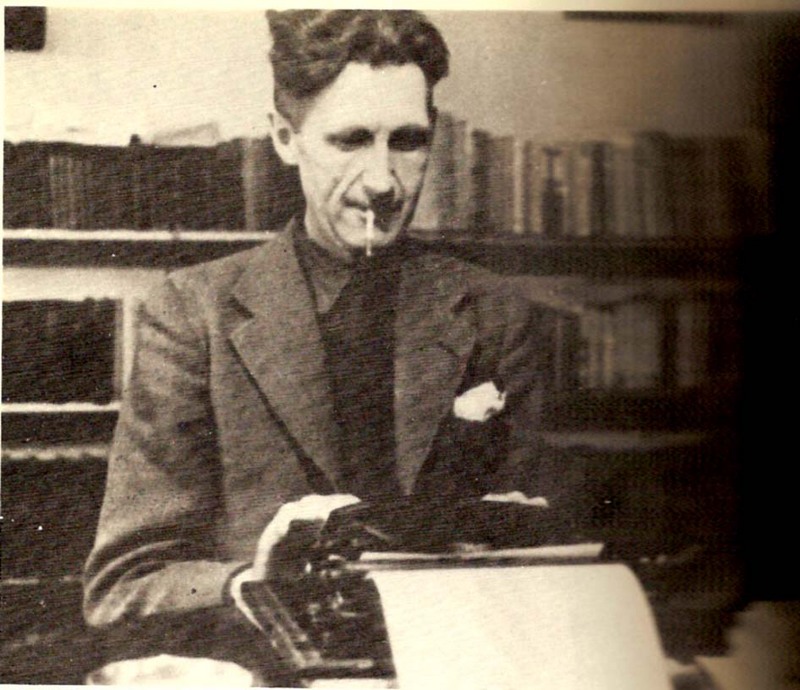 New Statesman has a very interesting article by Keith Gessen about George Orwell’s ‘plain spoken’ style that manifested itself in a series of essays in the 1940s and found its full expression in his masterwork, Nineteen Eighty-Four. It’s fascinating to read about how Orwell’s experiences with fighting in Spain during the civil war in the 1930s and journalistic coverage of the events of that war influenced his use of altered and entirely untrustworthy newspaper articles in Nineteen Eighty-Four. Orwell apparently believed in clear, sharp and truthful language. He did not want ready phrases or dead metaphors. He wanted keen observation and simple expression.
New Statesman has a very interesting article by Keith Gessen about George Orwell’s ‘plain spoken’ style that manifested itself in a series of essays in the 1940s and found its full expression in his masterwork, Nineteen Eighty-Four. It’s fascinating to read about how Orwell’s experiences with fighting in Spain during the civil war in the 1930s and journalistic coverage of the events of that war influenced his use of altered and entirely untrustworthy newspaper articles in Nineteen Eighty-Four. Orwell apparently believed in clear, sharp and truthful language. He did not want ready phrases or dead metaphors. He wanted keen observation and simple expression.
I think he achieved this in Nineteen Eighty-Four to a great degree. Mr. Gessen says one thing in his article that I don’t necessarily agree with: “In truth, Orwell was wrong about all sorts of things, not least the inner logic of totalitarianism: he thought a mature totalitarian system would so deform its citizenry that they would not be able to overthrow it. This was the nightmare vision of Nineteen Eighty-Four. In fact, as it turned out in Russia, even the ruling elite was not willing to maintain mature totalitarianism after Stalin’s death.”
I don’t think that’s quite right. The totalitarian regime in Nineteen Eighty-Four is overthrown. In the last section of the book the writing jumps out into the future and discusses a quite obviously defunct and long-gone totalitarian state that tried to reduce language to its own ends. I think the point of Nineteen Eighty-Four is that complete control of a population can be largely achieved with various mind-control techniques and the constant application of fear, but that it requires only a modest intelligence to resist and eventually overthrow such control. The novel’s protagonist, Winston Smith, is just an ordinary schlump. He’s not very bright. Pretty dim in fact. The idea with Winston Smith is if he can do it then anyone can. And yet he is capable of resisting until his will is ultimately beaten out of him. But the point is that the will to resist is a real pest. You can’t remove it from society. It always comes up and eventually overpowers all control structures.